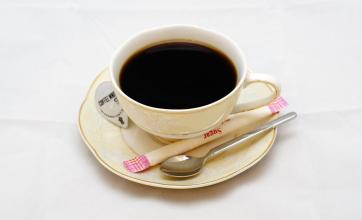Light-scented Java coffee flavor and taste the characteristics of the manor producing area introduce Indonesian boutique coffee
The happiness of life is to reap such an incisive interpretation of the realm. Java coffee the sour, bitter and sweet tastes of Java coffee match just right. Unique fragrance, after drinking, the aroma fills the whole mouth. Exhale the aroma from the mouth again from the nose, the smell is very full. Maybe you will find it too overbearing, because it will quickly occupy your taste buds, your mind and even your soul. Why resist it? The life we live in is full of sour, sweet, bitter and astringent, so let the smell of coffee take away everything in the world. What we enjoy is not just a cup of coffee, but also the quiet moment that coffee brings to us. Java has a mild, humid and diverse climate that makes it a harvest season all year round, with different kinds of coffee ripening at different times. What they grow is the unique quality of Java coffee beans, the coffee ground by this coffee bean, rich taste, endless aftertaste, can be called high-quality coffee. Many people equate "Java coffee" with "high quality" and "good taste". The world coffee is divided into two series, one is the "hard" coffee represented by Brazil, which has a strong flavor, and the other is the "soft" coffee represented by Java coffee, which has a light flavor. The difference lies in the altitude of the producing area and the planting method, the coffee is planted in the hilly red soil is more extensive, Java is produced in the mountain black soil intensive cultivation. Java coffee has a kind of bitter experience, it is as astringent as life, but bitterness is necessary in life, and the last fragrance at the root of the tongue is a thorough recollection of the past. Looking back on the hardship in the past, I will feel its sweetness and warmth even more, and I want to let the mood stop in the consciousness that begins to awaken for a long time. Bitter is painful, clear and quiet, and the last fragrance becomes a spiritual triumph. Indonesian coffee is about 90 per cent Romda beans, about 6.8 million bags a year, and less than 10 per cent of beans are Arabica coffee. Coffee produced in Indonesia generally does not have the name "Indonesia", but directly bears the name of the island, such as Java, Sumatra and so on. Each caffeine variety has a different origin and has its own strong character, such as the masculine Mantenin, which resembles the character of an iron and steel man; mellow, fragrant blue mountain coffee, and gentle women are addicted to missing. Java Coffee, which has always been light and fragrant, is suitable for those who like light sex. Such people do not want to drink coffee as a sitting thing, from sour, sweet, bitter, astringent experience what profound philosophy of life, just want to simply drink a cup of delicious coffee, a cup of hot Java coffee, let these people realize that "the realm of life is rich and quiet." Quiet, because to get rid of the temptation of external fame and gain; rich, because with the inner spiritual world of the treasure Java coffee produced in Java, Indonesia, belongs to Arabica coffee. After baking, the bitter taste is extremely strong and the aroma is very light, without sour taste. The bitterness and mellowness of Java coffee, coupled with the sweetness of chocolate syrup, make Java coffee more mellow and palatable and very popular with women! Among the Asian coffee-producing countries, Indonesia is a very noteworthy one. Indonesia is an island country in the Indian Ocean, the islands are distributed on both sides of the equatorial line, of which three islands: Java, Sumatra and Sulawesi produce the world's important coffee. In the mid-17th century, the Dutch brought coffee trees to Ceylon (Sri Lanka) and Java, Indonesia. In the 18th century, Indonesia became a major producer of coffee, and almost all of its high-quality Arabica coffee was supplied to Europe. But by the 19th century, coffee rust, which appeared in Ceylon in 1869, also affected Indonesia. By 1877, most of the coffee fields on the Indonesian islands had been damaged by rust, and the Dutch had to import other coffee varieties from Africa, namely Romsda coffee. It is more resistant to diseases and insect pests, but its quality is inferior.

Important Notice :
前街咖啡 FrontStreet Coffee has moved to new addredd:
FrontStreet Coffee Address: 315,Donghua East Road,GuangZhou
Tel:020 38364473
- Prev

Introduction to the characteristics of the manor producing area of Costa Rican coffee beans with clear flavor
Excellent Costa Rican coffee is called extra hard beans, and this kind of coffee can grow at an altitude of more than 1500 meters. Altitude has always been a problem for coffee growers. The higher the altitude, the better the coffee beans, not only because the higher altitude can increase the acidity of the coffee beans and thus increase the flavor, but also because the night temperature at the higher altitude is lower, which can make the trees grow slowly.
- Next

Jasmine fragrant Guatemalan Coffee Manor Flavor Taste introduction to Guatemalan Fine Coffee beans
Antigua coffee has a velvety mellow, rich and lively spice flavor, richer taste, and it has a fascinating tobacco flavor and fine sour taste. It is a well-deserved boutique coffee. Compared with other varieties of coffee in Guatemala, critics prefer this mixed flavor coffee with spicy flavor. The extra hard coffee beans here are rare and good ones.
Related
- Detailed explanation of Jadeite planting Land in Panamanian Jadeite Manor introduction to the grading system of Jadeite competitive bidding, Red bid, Green bid and Rose Summer
- Story of Coffee planting in Brenka region of Costa Rica Stonehenge Manor anaerobic heavy honey treatment of flavor mouth
- What's on the barrel of Blue Mountain Coffee beans?
- Can American coffee also pull flowers? How to use hot American style to pull out a good-looking pattern?
- Can you make a cold extract with coffee beans? What is the right proportion for cold-extracted coffee formula?
- Indonesian PWN Gold Mandrine Coffee Origin Features Flavor How to Chong? Mandolin coffee is American.
- A brief introduction to the flavor characteristics of Brazilian yellow bourbon coffee beans
- What is the effect of different water quality on the flavor of cold-extracted coffee? What kind of water is best for brewing coffee?
- Why do you think of Rose Summer whenever you mention Panamanian coffee?
- Introduction to the characteristics of authentic blue mountain coffee bean producing areas? What is the CIB Coffee Authority in Jamaica?

